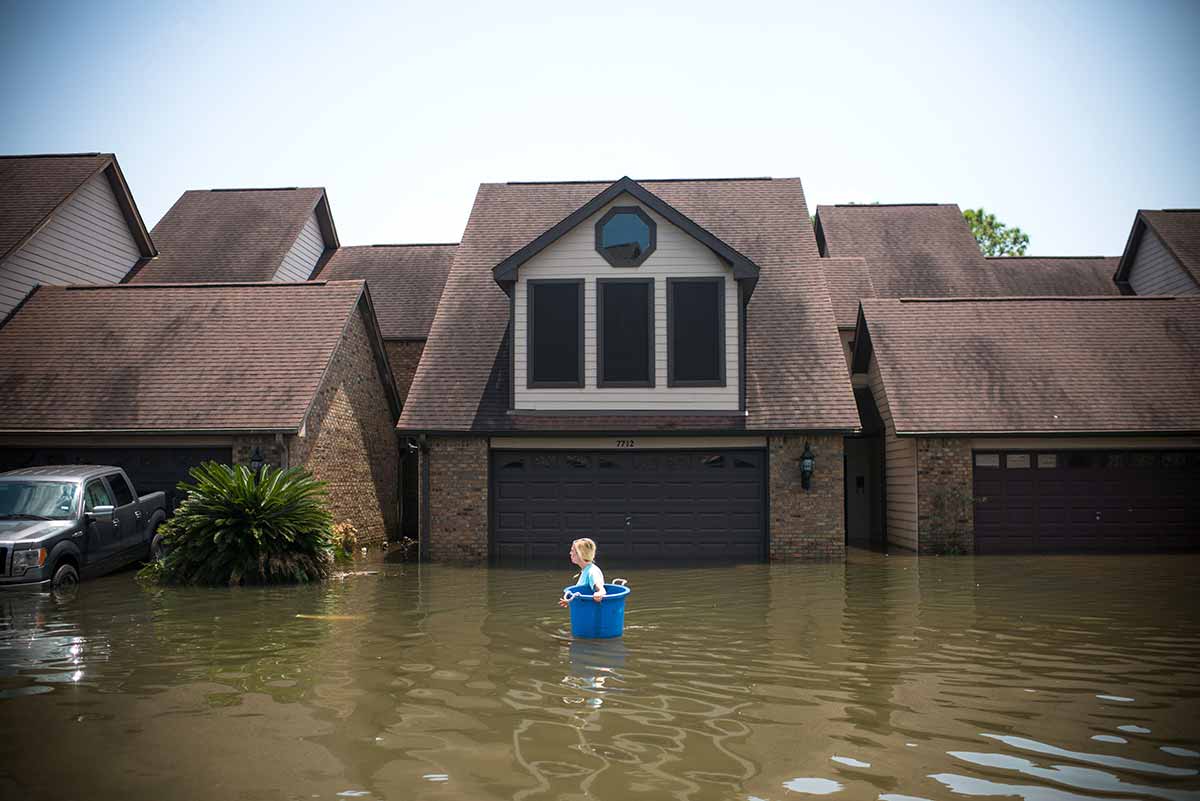Written by Andy Gurczak
August 1, 2021
What is a personal property insurance claim?
Personal property insurance coverage (also known as Coverage C) is a part of your homeowners insurance policy. It is meant to financially protects the belongings inside your home. For example, furniture, clothing and appliances. However, you are only covered if your items were burglarized, or damaged/destroyed by an already covered peril. Nevertheless, the great thing about this part of homeowners insurance is that your belongings are also protected outside of the home. The same type of coverage is also found in standard renters policies and condo/co-op policies.
Furthermore, your policy also dictates what type of property it will and won’t cover, as well as the coverage limit. Most personal property insurance policies cover rare and expensive items like furs, and jewelry up to a limited amount, or sublimit. Although, insurance companies do offer enhanced personal property coverage that increase reimbursement limits on high-value items. Moreover, when setting up your policy, your personal property coverage limit is 50% of your dwelling coverage limit. But with an enhanced personal property coverage limits can go up to 70% of your dwelling limit.
Key takeaways
- First, personal property coverage is the section in your homeowners insurance policy that covers your personal possessions
- Second, your possessions receive protection from covered hazards inside and outside the home
- Certain expensive valuables like jewelry or antiques have coverage limits. However, you can increase those limits for an additional premium
What Does a Personal Property Insurance Claim Cover?
Personal property insurance reimburses you for damage to your personal possessions up to your personal property coverage limit. This is however, after you have paid your home insurance deductible. Furthermore, personal property insurance covers your stuff inside the home and garage, as well as items in your car or hotel room if you’re on the road. Coverage limits vary with each policy. Moreover, there are two types of homeowners insurance policies that determine which types of damage is covered: open peril and named peril. The following are the most common named perils for which personal property insurance offers coverage:
- Water heater cracking, tearing and burning.
- Lightning or fire,
- As well as explosions.
- Hail or windstorm.
- Riots or civil disturbances.
- In addition, smoke damage.
- Damage caused by vehicles,
- And theft
- Equally important is damage from the weight of snow, ice or sleet.
- Vandalism,
- Damage caused by aircraft,
- As well as falling objects.
- Volcanic eruptions,
- Water damage from plumbing, heating or air conditioning overflow
- And damage from electrical current.
- Last but not least, pipe freezing.
On the other hand, open peril policies protect your belongings from any type of damage. However, so long as it is not explicitly excluded from your policy. Standard homeowners policies typically exclude coverage for the following:
- Pressure from tree roots
- As well as natural settling, cracking, shrinking, bulging or expansion of the foundation.
- Likewise, earthquakes and floods.
- It also excludes insects, vermin, rodents and pet damage.
- Furthermore, it usually doesn’t cover mold damage either.
- Or faulty construction.
- And neither does it cover natural wear and tear,
- As well as corrosion.
Moreover, here’s a rundown of the different types of personal property that are usually covered in a standard homeowners insurance policy:
- First, indoor and outdoor furniture
- Second, clothing
- As well as TVs
- Kitchen appliances
- Also bikes
- And Rugs
- Lawn care equipment and
- Finally, trampolines
How about personal property insurance coverage for plant life?
Trees, plants, shrubs, and foliage are also covered under a standard homeowners insurance policy. Generally there is a $500 limit per item. However, remember that this is only if a covered peril caused the damage.
Does Renters Insurance Cover Personal Property Insurance Claims?
People tend to wrongfully assume that their landlord’s insurance policy will cover their belongings. However, while landlord insurance usually helps protect the residence’s structure against certain risks, that coverage does not extend to a renter’s belongings. Conversely, these belongings are generally covered by the personal property coverage section of their renters insurance policy.
Does Condo Insurance Cover Personal Property Insurance Claims?
Condo policy includes coverage for the owner’s belongings against certain risks, such as fire or theft. So, meanwhile a condo association’s insurance may help protect the physical structure of the building and the areas shared by multiple owners, that protection does not extend to the stuff inside a unit.
Do Personal Property Insurance Claim Cover Lost Items?
Usually homeowners, renters and condo policies do not provide coverage for lost items. As we said above, personal property insurance covers stolen articles. However, if you misplace a belonging for example, personal property insurance usually will not cover the loss.
What Is a Scheduled Personal Property Insurance Claim?
As mentioned above, personal property insurance does come with sub-limits for certain types of property. Therefore, an agent can help you decide whether you may benefit from “scheduling” certain items. Which means purchasing separate coverage to further protect specific high-value items, such as jewelry, art or musical instruments.
There’s a good reason why insurers put reimbursement limits on expensive property types. Because, for example, if every claim was met with a payout of its replacement value, insurance costs would skyrocket. Nevertheless, if you own expensive keepsakes, you have a couple of options to increase your coverage:
- Get an enhanced policy: In fact, many insurance companies offer enhanced policy tiers for an additional amount.
- Purchase a personal articles floater or scheduled property endorsement: With a scheduled property endorsement, you simply list the expensive valuables you’d like enhanced coverage for in a form provided by your insurer. You must also specify the appraised value of the item, and you’re covered for that amount. Moreover, when you need to file a claim for a stolen or damaged scheduled item, you typically won’t need to pay a deductible.
How Much Personal Property Coverage Do I Need?
Your personal property coverage needs depend on the type of property you own and how much it’s all worth. In fact, your contents coverage amount should be enough to replace everything in your home if it’s destroyed or damaged. However, there are a few things to consider to ensure you are adequately covered. For example, there are two distinct types of coverage options that determine how much you’re reimbursed for a covered loss:
- Actual cash value coverage: pays only for the depreciated amount of the item. Depreciation is the decrease in an item’s value due to its age, condition, or other factors.
- Replacement cost value coverage: reimburses you for the amount it would take to replace the item at the time you filed the claim.
A standard policy’s personal property coverage is ACV by default, but most companies give you the option to add RCV to your policy for a slightly higher premium. Create a home inventory and be sure to include descriptions, prices, and the quantity of items that you’re insuring. Keeping an inventory will help you determine how much coverage you need for your personal possessions. And it’s also something to point to when claiming a loss.
How Much Does Personal Property Insurance Cost?
Personal property coverage costs around $1,200 annually. However, it is usually included in every standard homeowners insurance policy. But your insurance costs could increase if you need an enhanced policy or a scheduled property endorsement for expensive valuables.
Moreover, whether you have an actual cash value or replacement cost policy will also affect your insurance costs. Actual cash value policies may have lower premiums and save you money in the short term, but could cost you in the long run. Specifically you’re reimbursed with a measly claim check for your damaged stuff.
Furthermore, you should also consider your deductible. Which is the amount you pay to your insurer after you file a home insurance claim. Consequently, the lower your deductible is, the higher your insurance premiums will be. Likewise, the higher your deductible is, the lower your insurance premiums will be.
How Does a Personal Property Insurance Claim Works?
A personal property claim works like any other type of homeowners insurance claim.
If your stuff suffers damage, file the claim online or over the phone. Then a claims adjuster will come to assess the damage, determine the validity of the claim, and report back to the insurer.
If you receive claim approval, the insurance company will first determine an acceptable amount to repair and/or replace the object. Therefore, if you have ACV, you’ll receive this amount minus the cost of depreciation. Meanwhile with RCV, you’ll receive enough money to replace that item according to its current value. Be sure to save all receipts and statements. You will also have two years from the time of the initial payment to replace or repair the object.
Best way to beat the insurance company is to hire AllCity Adjusting
At AllCity Adjusting we help residential and commercial clients alike get the claims support they need. Moreover, we have over 50 years of combined experience helping get our clients the max settlement time and time again. If your claim has been low balled or denied entirely we can help increase your maximum settlement. Call us today for a FREE consultation. Experience the AllCity difference.
Real Support When You Need It!
Related Articles
7 Red Flags That Indicate You Need to Hire a Public Adjuster
If you own property, managing roofing insurance claims might seem tough. Knowing how to quickly deal with roof damage insurance claims from water, weather, fire, or unexpected events is helpful. In this guide, we’ll share useful tips to help you understand and work through roofing insurance claims more easily, aiming for a quicker solution.
Navigating Fire Damage Claims: What Every Property Owner Should Know
If you own property, managing roofing insurance claims might seem tough. Knowing how to quickly deal with roof damage insurance claims from water, weather, fire, or unexpected events is helpful. In this guide, we’ll share useful tips to help you understand and work through roofing insurance claims more easily, aiming for a quicker solution.
The Role of a Public Adjuster in Water Damage Claims
If you own property, managing roofing insurance claims might seem tough. Knowing how to quickly deal with roof damage insurance claims from water, weather, fire, or unexpected events is helpful. In this guide, we’ll share useful tips to help you understand and work through roofing insurance claims more easily, aiming for a quicker solution.
Understanding Water Damage Claims: A Comprehensive Guide for Homeowners
If you own property, managing roofing insurance claims might seem tough. Knowing how to quickly deal with roof damage insurance claims from water, weather, fire, or unexpected events is helpful. In this guide, we’ll share useful tips to help you understand and work through roofing insurance claims more easily, aiming for a quicker solution.
Essential Traits and Skills for a Successful Public Adjuster
If you own property, managing roofing insurance claims might seem tough. Knowing how to quickly deal with roof damage insurance claims from water, weather, fire, or unexpected events is helpful. In this guide, we’ll share useful tips to help you understand and work through roofing insurance claims more easily, aiming for a quicker solution.
Tips Expedite the Process :Commercial Roofing Insurance Claims
If you own property, managing roofing insurance claims might seem tough. Knowing how to quickly deal with roof damage insurance claims from water, weather, fire, or unexpected events is helpful. In this guide, we’ll share useful tips to help you understand and work through roofing insurance claims more easily, aiming for a quicker solution.
Stay Up to Date With The Latest News & Updates
Don't Wait - Get More
Get a free 1 hour consultation on your next call. So call today and challenge the insurance company narrative on your policy claim. We can help you with all your public adjuster claims support. Let us help you get more.
Join Our Newsletter
Do you want to learn more about public adjusting. In this newsletter we create helpful tips and hints and you will receive notifications when we post new articles.
Follow Us
Follow us on the following social networks.







Recent Comments